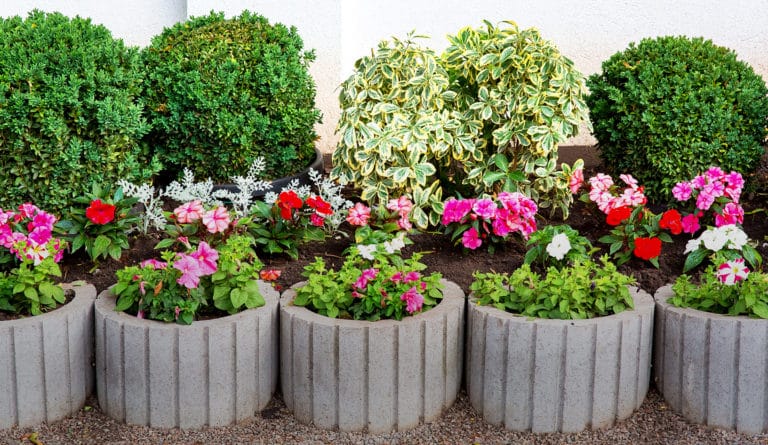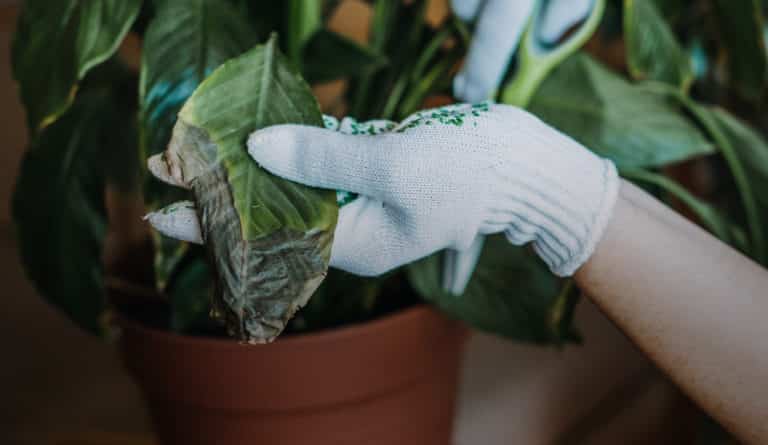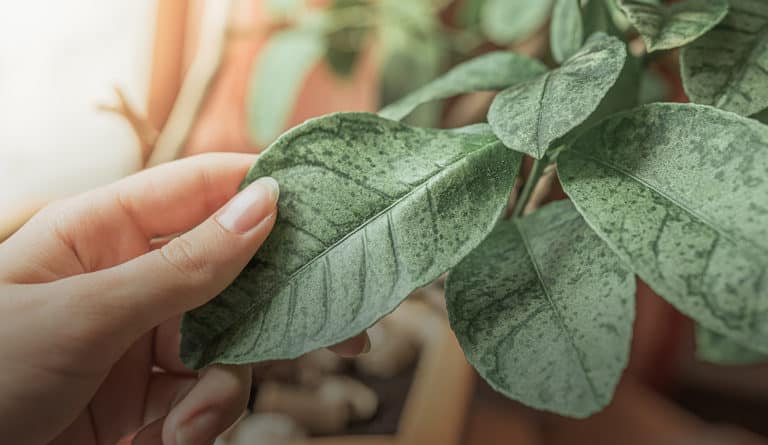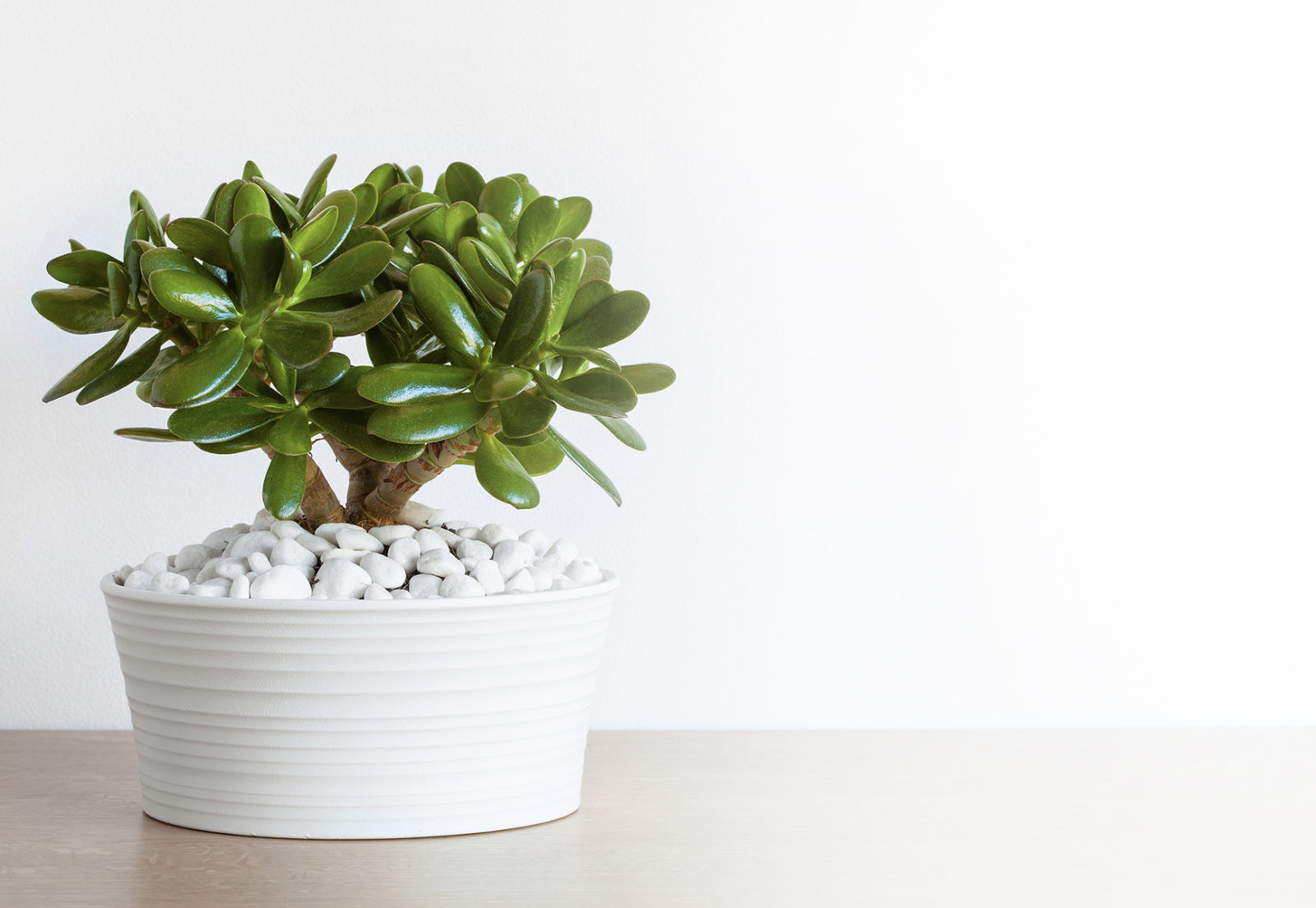
jade
aka crassula ovata
Jade plants are native to South Africa and are classified as a succulent. Jade plants have oval shaped, fleshy leaves and stems that look like tiny tree trunks.
variations
there are a variation of jade plants available that range from the common green-leaf to more rare variegated varieties. Variegated jade plants can include the tricolour, ET’s Finger or the Hummel’s Sunset variety.
light
bright, indirect.
Jade plants, especially young plants, should get about 6 – 8 hours of light a day.
water + feeding
somewhat thirsty
In spring and summer your jade plant should be watered consistently so that its soil is moist, but not super wet.
toxic
Yes
Jade is toxic to pets.
location
Adaptable
These beautiful plants do well in most indoor settings, but prefer to be close to bright, indirect light. Jade does their best growing in room temperature 18° to 24°C (65° to 75°F).
humidity
a little finnicky
Overwatering and standing water are the most common mistakes made with jade plants. Be sure to monitor your jade for signs of too much moisture.
size
it depends
Jade plants can grow up to 5 ft tall but can stay small if they are rootbound in a small pot.
pro tip
rare flowers
Jade plants don’t regularly flower when grown indoors. To get your jade plant to flower keep it rootbound and in a small pot. Cut back slightly on watering, and you may see a bloom come through.
fun fact
bringers of good luck
Jade is often given as a housewarming gift because it’s thought to bring good luck.
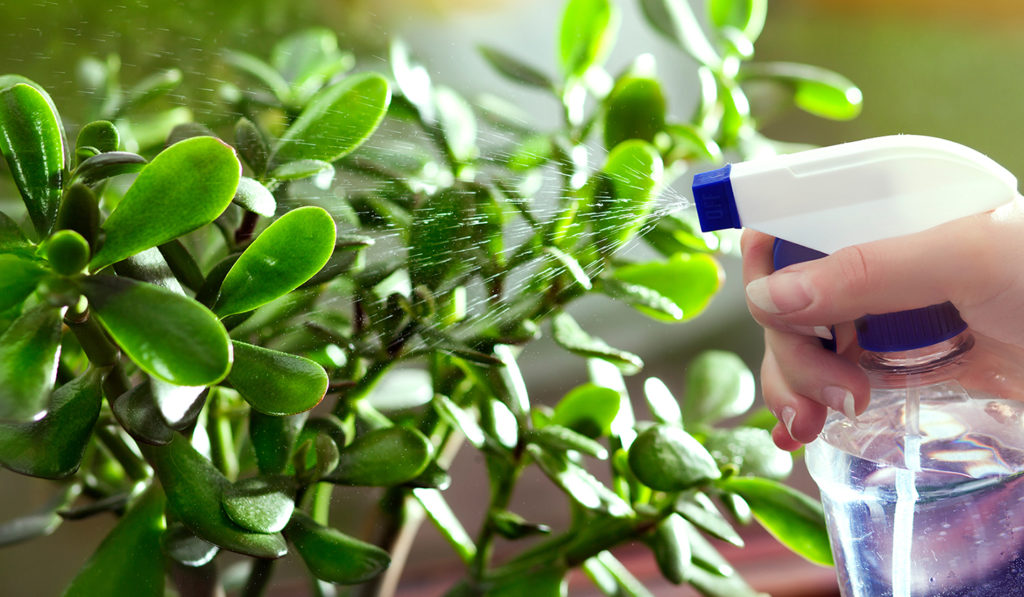
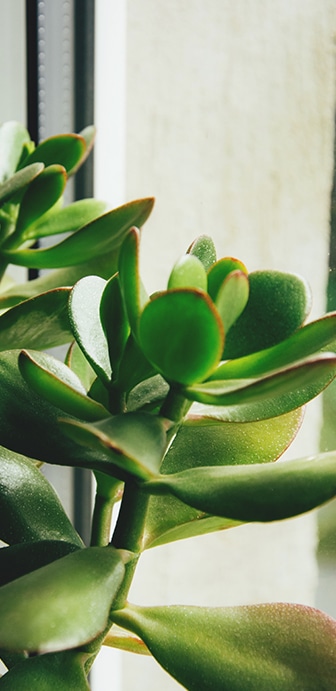
beyond the basics
-
soil + potting
Succulents thrive in porous, well draining potting mix. These usually have less organic matter than regular indoor potting mix. A mix like Miracle-Gro® Cactus, Palm & Succulent Potting Mix is well-draining and won’t compact. Don’t forget to feed your plants consistently during the feeding season.
-
when to repot
Repotting a young jade plant every 2 – 3 years will encourage growth. If you want to keep your jade plant small, they enjoy being slightly rootbound and can stay in a small pot to maintain a manageable size. Always repot in the spring.
-
propagation
Propagating a jade plant is super easy! You can start a whole new jade from just a single leaf or cutting. Remove a leaf or stem cutting from a healthy, mature plant, making sure it’s about 2-3 inches long and has at least 2 leaf pairs. Let the cutting sit in a warm, bright place for several days to develop a little callous. Place the cutting in moist, well-draining soil, keeping it propped upright with rocks. Be sure not to water your jade cutting at this point. After a week or two roots should start to form. Gently water the soil once roots have formed, and allow soil to dry between watering.
-
pest control
Jade is prone to mealybugs and scale. Mealybugs may hide under the leaves of your plant. During your routine leaf cleaning, inspect the underside. Most pests can be managed by using an insecticidal soap such as Ortho® Bug B Gon® ECO Insecticidal Soap. For more tips, check out our Pest control section in Plant 101 for how to identify and deal with pests on your plant!
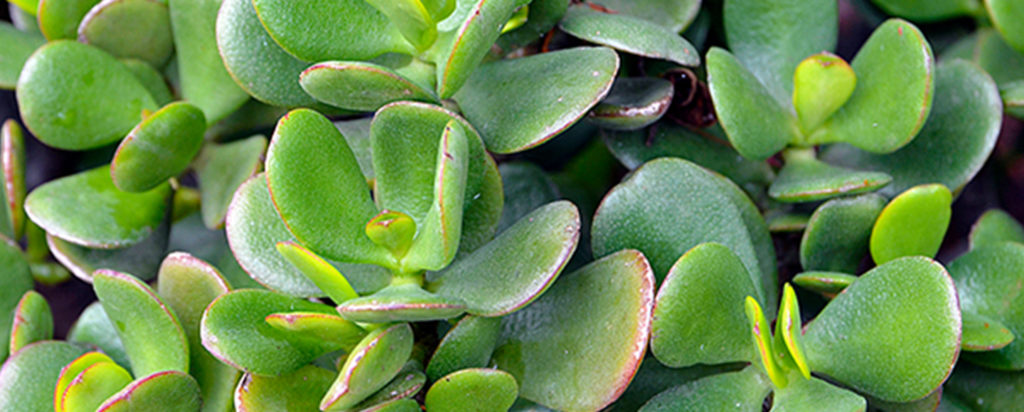
troubleshooting
-
why are my leaves dropping?
Overwatering. While young jade plants need thorough watering, if your jade’s leaves are squishy and dropping it’s definitely getting overwatered.
-
why are my leaves shrivelling?
Underwatering. These are clear signs that your jade is asking for more frequent or deeper watering.
-
why are the stems getting squishy?
Root rot. Do a quick inspection of your plant’s root ball. A healthy root will be firm a white. If your plant’s roots are looking brown or slimy, it’s definitely root rot. To avoid this, be sure the soil is drying out completely between watering.
-
why are my leaves spotty?
You’ve got scale. These insects feed on the sap in your jade’s leaves. You can quickly remedy this problem by applying Ortho® Bug B Gon® ECO Insecticidal Soap.
